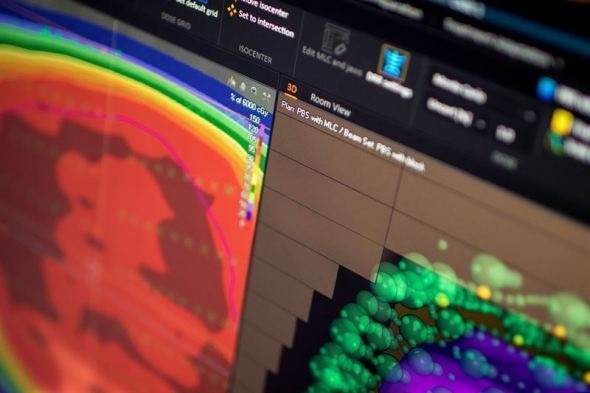Kobe Proton Center in Japan has recently started clinical application of RayStation 7 for treatment. The first patient was treated in March 2018 using the uniform scanning method with a plan created in RayStation.

The new state-of-the-art center opened in 2017 and was one of the first clinical installations for particle therapy for RayStation in Japan. The RayStation system has been adapted to Mitsubishi Electric Corporation's special PBS delivery techniques. The order was placed in 2016, and the adaptation was successfully validated last year in partnership with Mitsubishi Electric Corporation.
Kobe Proton Center is equipped with Mitsubishi Electric Corporation’s new multifunction irradiation nozzle, which can be used in uniform scanning or PBS mode and is capable of quickly switching between the two modes. The new technology includes a high dose rate beam delivery system that reduces irradiation time by 75 percent for improved patient comfort. Currently, the system is being used in uniform scanning mode, and PBS will be introduced in the near future.
Tomohiro Yamashita, Medical Physicist at Kobe Proton Center, says:
Our important mission is to provide the best proton therapy possible to pediatric patients with cancer. To achieve the goal, we need the most advanced technology present and we are happy that RayStation 7 gives us opportunities to apply many advanced functionalities with efficiency. We hope RaySearch will continue to be a leading company in the area of proton therapy and enable us to provide the best care to pediatric patients."
Johan Löf, CEO of RaySearch, says:
We are very pleased to see the first patient treatment with RayStation treatment plan at Kobe Proton Center. Proton therapy is a special focus area for RaySearch and Japan is one of the world’s most technologically advanced markets. We have a strong user base in Japan and are strengthening our presence to support the market more fully. I look forward to a successful cooperation with Kobe Proton Center."